MIT SCHOOL OF HUMANITIES, ARTS, AND SOCIAL SCIENCES
Media + Awards Digest | August 2021
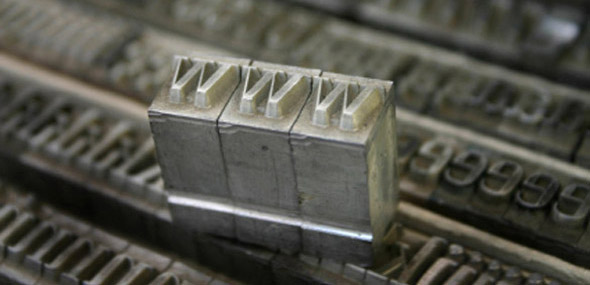
The Media + Awards Digest is a section of the Said and Done newsletter. Subscribe
Office of the Dean | 19 August 2021
Dear Friends,
Greetings. As the nation and the world take in the searing facts of the latest report from the Intergovernmental Panel on Climate Change, as well as new and ongoing tragedies rooted in the complexities and frailties of human life, we find that the media contributions from MIT's SHASS scholars are, as ever, a source of insight and analysis needed for civic understanding and action.
A few recent highlights in this month’s media digest include:
On CNN, John Sutter, climate journalist and fellow in the school's Knight Science Journalism Program, makes the case that for the world to contend successfully with the accelerating climate crisis, "The narrative on climate change must shift from one of individual responsibility to one of governmental and corporate accountability."
In The Washington Post, Rachel Tecott, a PhD candidate in the Security Studies Program, asks and helps answer the question: What happened to the Afghan security forces that the U.S. spent nearly two decades training?
In Axios, Nobel Prize-winning economists Esther Duflo and Abhijit Banerjee discuss global vaccine inequality, and warn that the failure of rich countries to share more vaccine supply with poorer ones will exacerbate the rise in global poverty and could also diminish the global will needed for cooperation on climate issues.
In STAT, professor of anthropology Susan Silbey and Ruthanne Huising '08 make the case that protecting the public from lab leaks is best done by giving more attention and respect to existing lab protocols, rather than high-tech anti-terrorism measures. In The Wall Street Journal, Institute Professor Daron Acemoglu, whose research on the economic impacts of AI, requires a precise definition of the term, contributes to a debate on evolving definitions of "Artificial Intelligence."
Finally, for a deep dive on the powers of humor — including the ability to forge resilience, solidarity, and solace — take a look at philosopher Kieran Setiya’s essay in the New Statesman. Despots aren’t defeated by laughter, he tells us, but the fundamental message of both the comedian and the social critic — "It doesn’t have to be this way" — disturbs prevailing, systemic conditions.
With warm best wishes for healthy summer days—and for the return to campus!
MIT SHASS Communications
MEDIA DIGEST
SECURITY STUDIES
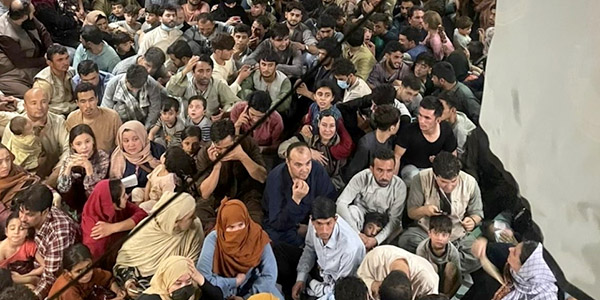
Detail; A U.S. Air Force C-17 Globemaster III safely transported approximately 640 Afghan citizens from Hamid Karzai International Airport, 15 August 2021. Public domain photo courtesy of the U.S. Air Force. Full image.
THE WASHINGTON POST
What happened to the Afghan security forces? | Rachel Tecott, PhD candidate
In her analysis, Tecott, a PhD candidate in our MIT Political Science/Security Studies Program, writes that "leaders facing societal upheaval, insurgency and civil war often prioritize preventing coups, consolidating political power, personal enrichment or personal survival above the strength of their nation’s military."
Commentary at The Washington Post | Tecott Website | Tecott on Twitter
Related: Kori Schake in The Atlantic
THE WASHINGTON POST
Commercial satellites revealed China’s missile program | Erik Lin-Greenberg
Political scientist Lin-Greenberg writes that "As commercial imagery satellites proliferate in orbit, policymakers around the world will increasingly need to grapple with the ways the technology can reveal national security secrets. Although decision-makers can leverage these technologies for their own purposes, they may continue to find themselves pushed toward more confrontational policies if commercial imagery mobilizes public opinion."
Commentary at The Washington Post
THE WASHINGTON POST
North Korea threatens to boost nuclear program | Vipin Narang
In a recent statement, North Korea's Kim Yo Jong accused South Korea of “perfidious behavior,” and said “We will put more spur to further increasing the deterrent of absolute capacity.” Narang, an expert on nuclear strategy, South Asia, and international security, said he interpreted the phrase "deterrent of absolute capacity" to refer to North Korea's "overall nuclear deterrent and posture."
Story at the Washington Post
SOLVING CLIMATE

Tuvalu; photo by Mario Tama/Getty Images
THE NEW YORK TIMES
What does it mean for a nation to become uninhabitable? | Devi Lockwood '19
Lockwood, an alumna of MIT's Graduate Program in Science Writing, traveled the globe for five years, talking to people about the changes they were seeing in their local waters, lands, and climates. Her forthcoming book, 1,001 Voices on Climate Change, from which this NYTs commentary is adapted, tells the stories.
Commentary at The New York Times | 1001 Stories website | Story: Beside Still Waters
CNN
Stop blaming yourself for the climate crisis | John D. Sutter, KSJ Fellow
Sutter, a climate journalist and fellow in the Knight Science Journalism Program at MIT writes, "The narrative must shift from one of individual responsibility — if I turn off this lightbulb, I'm saving the planet — to one of governmental and corporate accountability. In the United States, this means the voting public must force Congress to enact sweeping climate legislation."
Opinion at CNN | John Sutter website | Baseline film project
A RESOURCE: TED TALK
Turning climate anxiety into creativity and resilience
It's normal to feel anxious and overwhelmed by climate change, says psychologist and climate activist Renée Lertzman. Can we turn those feelings into something productive? In this TED Talk, Lertzman shares three key psychological insights that help develop creativity, clear thinking, and resilience for engaging with the climate crisis.
Lertzman Ted Talk | Related: MIT Podcast with Lertzman
HEALTHCARE
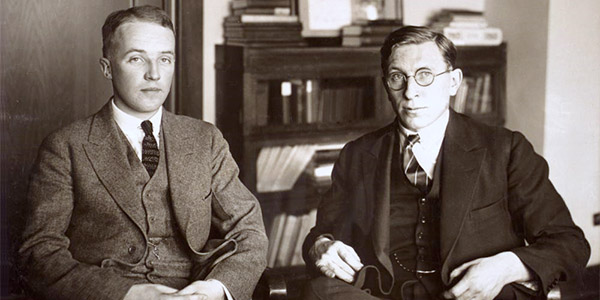 L to R: Charles Vest and Frederick Banting, 1924; University of Toronto Library.
L to R: Charles Vest and Frederick Banting, 1924; University of Toronto Library.
THE NEW ENGLAND JOURNAL OF MEDICINE
One hundred years of insulin — for some | Amy Moran-Thomas
Anthropologist AnMoran-Thomas writes that "In July 1921, researchers in Canada isolated the hormone insulin. This discovery profoundly changed the lives of people with diabetes. But insulin remains unaffordable and inaccessible in many parts of the world."
Article in The New England Journal of Medicine
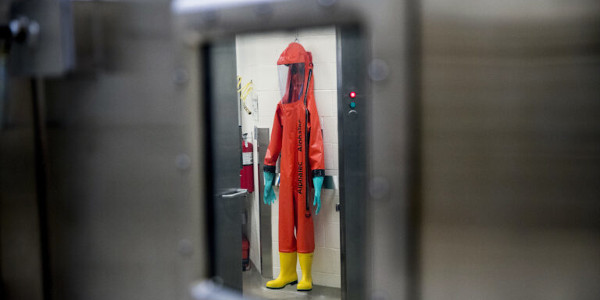
A biosafety suit at U.S. Army Medical Research & Development Command; Andrew Harnik/AP
STAT
How to protect society from lab leaks | Susan S. Silby + Ruthanne Huising '08
Professor of Anthropology Professor Silbey and alumna Ruthanne Huising '08, experts in lab safety, coauthor a piece arguing that: "The global research community does not need more rules, more layers of oversight, and more intermediary actors. What it needs is more attention and respect to already known biosafety measures and techniques. These are not external costs on research but essential constituents of it, and institutions need to devote more attention and resources to the banal — but essential — biosafety processes that already exist."
Analysis at STAT
PHILOSOPHY
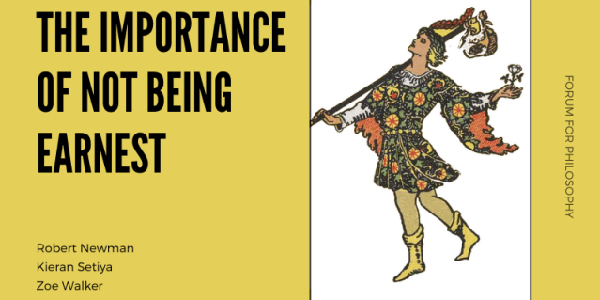
"It would be wrong to underestimate the power of comedy to forge endurance and solidarity in appalling times."
THE FORUM FOR PHILOSOPHY
The importance of not being earnest | Kieran Setiya, Robert Newman, Zoe Walker
What is comedy? What is its value in our lives? And what’s philosophically interesting about comedy? Both have a lot in common: showing up the ordinary as odd, critiquing the status quo, hecklers… But can humour be a source of knowledge? What role does it play in our social and political life? And will we ruin the joke by explaining it?!
Watch / Listen on You Tube
NEW STATESMAN
Can comedy change the world? | Kieran Setiya
"Despots aren’t defeated by laughter," writes MIT philosopher Kieran Setiya, "but the fundamental message of the comedian — 'it doesn’t have to be this way' — disturbs the prevailing order." Comedy also enlightens and offers solace and community. "[It] would be wrong to underestimate the power of comedy to forge endurance and solidarity in appalling times."
Commentary at the New Statesman
TIMES LITERARY SUPPLEMENT
Mob Rule: The power of stadium crowds | Kieran Setiya
A review of Crowds, by Hans Ulrich Gumbrecht: "Gumbrecht is an Emeritus Professor of Literature at Stanford University and a lifelong fan of stadium sports. His new book takes an empathetic look at the elation of fans like me, on nights like the one I experienced eight years ago."
Book Review at The Literary Supplement
ECONOMICS

ECONOMICS | CREATING ECONOMIC EQUITY
The future of money | Esther Duflo in conversation with Jesse Norman
Duflo, a Nobel Prize laureate and Professor of Economics at MIT speaks with Jesse Norman, British Conservative Party politician and Financial Secretary to the Treasury, about the future of money and ending inequality.
Video
BLOOMBERG SURVEILLANCE
Nobel laureate Esther Duflo on closing the poverty gap
Duflo, professor of poverty alleviation and development economics at the Massachusetts Institute of Technology and author of Good Economics for Hard Times, discusses her studies about poverty in the global economy.
Commentary at Bloomberg TV
THE WALL STREET JOURNAL
Why artificial intelligence isn’t intelligent | Daron Acemoglu
“'I think AI is somewhat of a misnomer,' says Acemoglu, whose research on AI’s economic impacts requires a precise definition of the term. What we now call AI doesn’t fulfill the early dreams of the field’s founders — either to create a system that can reason as a person does, or to create tools that can augment our abilities. 'Instead, it uses massive amounts of data to turn very, very narrow tasks into prediction problems,' he says."
Story at The Wall Street Journal
WIRED
The ‘antitrust revolution’ overlooks AI—at Americans’ peril | Daron Acemoglu
Exactly how AI will affect the future of human work, wages, or productivity overall remains unclear. Though service and blue-collar wages have lately been on the rise, they’ve stagnated for three decades. According to MIT’s Daron Acemoglu and Boston University’s Pascual Restrepo, 50 to 70 percent of this languishing can be attributed to the loss of mostly routine jobs to automation.
Story at Wired
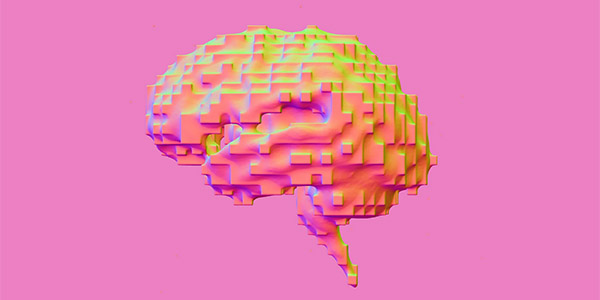
Image via Wired magazine
AXIOS
Rich world’s vaccine policies may jeopardize climate cooperation | Banerjee, Duflo
The failure of rich countries to share vaccines and financial assistance with poorer ones during the pandemic will exacerbate the rise in global poverty and could come back to haunt them, say Nobel Prize-winning economists Esther Duflo and Abhijit Banerjee. Duflo initially believed the pandemic would produce a “more cooperative world order” as rich countries showed solidarity with the developing world, potentially boding well for future collaboration on issues like climate change. Now she fears the opposite.
Story at Axios
COLUMBIA NEWS
Top ten ideas in statistics that have powered the AI revolution | Josh Angrist
An influential paper by MIT Professor of Economics Josh Angrist and Guido Imbens shaped the foundation for causal inference, identifying what questions can be reasonably answered from an experiment. Causal inference is central to any problem in which the question isn’t just a description (How have things been?) or prediction (What will happen next?), but a counterfactual (If we do X, what would happen to Y?).
Full story at Columbia News
THE WALL STREET JOURNAL
How to get the most value from the infrastructure bill | James Poterba
"We want to avoid the bridges to nowhere," said Poterba, the Mitsui Professor of Economics. Noting that infrastructure in the U.S. already tends to be far more expensive than in other countries, he added that ... "We should be looking at the ways in which we can do the spending so that we are getting the most bang for the buck."
Story at The Wall Street Journal
WGBH
Digital addiction and digital detox | Jonathan Gruber
MIT Economist Gruber, Ford Professor of Economics, talked with WGBH hosts about why economists are increasingly looking at digital addiction and about methods to digitally detox.
Conversation at WGBH
SCIENCE WRITING
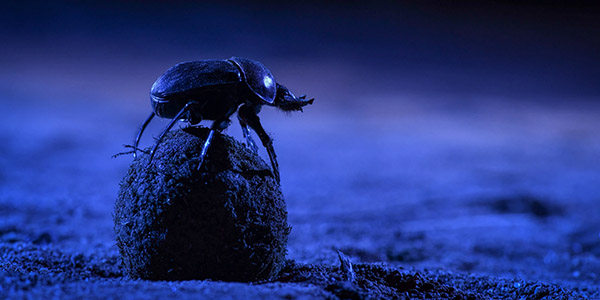
Dung beetles keep their treasure rolling in a straight line at night by orienteering with the Milky Way. Photocredit: Chris Collingridge
THE NEW YORK TIMES
What animals see in the stars | Josh Sokol '15
A new study of raises challenging questions: Can animals see the stars? Can animals use them? And what happens when they lose them?
Story at the New York Times | Josh Sokol's website | MIT Science Writing
WBUR
Billionaires in Space | Marcia Bartusiak
Space exploration has always captured our imaginations and united us in awe. Do those attributes continue in the era of space as a playground for the ultra wealthy? Marcia Bartusiak, acclaimed science writer and MIT Professor of the Practice emerita weighs in, along with Kelly Beatty, editor of Sky & Telescope.
Commentary at WBUR | Bartusiak website

Space tourism; image via iStock
PUBLICATIONS DIRECTORY
A Convenient, One-Page Portal
Here you will find all the online channels, newsletters, and publications produced by the School's 20+ departments, sections, programs, and centers. Look for current research, news, and commentaries from each of the MIT SHASS fields.
Visit the Publications Directory
HONORS AND AWARDS
ALUMNI
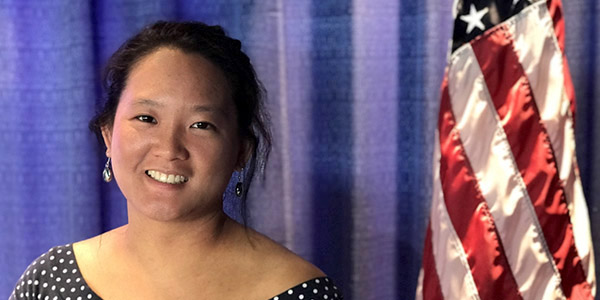
Sheila Xu, '14, STS major, at a ceremony where she received her pilot's wings
SCIENCE, TECHNOLOGY, AND SOCIETY
A deaf pilot's path to aviation | Sheila Xu '14
"My interest in aviation grew when I did a summer internship with the U.S. Transportation Department. As I studied the schematics for aviation biofuel production, I briefly considered what an amazing feeling it would be to be able to fly as a deaf pilot. Years later, I finally had the chance to put that wishful thought into action."
Story at the Federal Aviation Administration
Related: Auditory Systems Class: Sheila Xu '2014 on cochlear implants
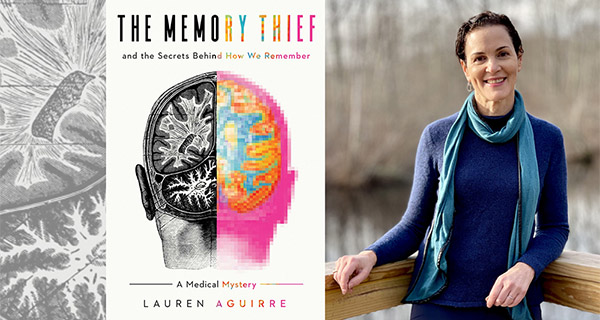
Lauren Aguirre '86, Science Journalism at MIT
The Memory Thief is the story of a team of doctors who — through years of scientific sleuthing — discover a surprising connection between opioids and memory. Aguirre is an award-winning science journalist who has produced documentaries, short-form video series, podcasts, interactive games, and blogs for the PBS series NOVA.
Aguirre's website | About the book
FACULTY
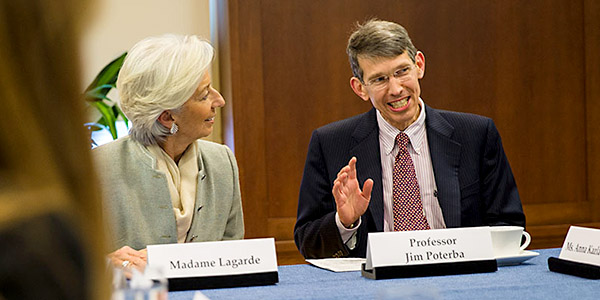
Jim Poterba, Mitsui Professor of Economics, at MIT event with Madame Christine Lagarde, then Managing Director of the IMF
ECONOMICS
James Poterba named 2021 American Finance Association Fellow
Poterba, the Mitsui Professor of Economics at MIT, was selected as the 2021 Fellow of the American Finance Association (AFA), an honor that recognizes distinguished contributions to the field of finance. Poterba's wide-ranging research in financial economics has examined the influence of taxation on corporate dividend payments, the degree of mean reversion in the returns on common stocks, and the role of defined contribution plans in promoting retirement security.
Announcement at the AFA | Poterba webpage
SCIENCE, TECHNOLOGY, AND SOCIETY
Will Deringer wins Joseph J. Spengler Best Book Prize
Deringer was recognized for his book Calculated Value (Harvard University Press, 2018). In the book, Deringer shows how modern political culture features a deep-seated faith in the power of numbers to find answers, settle disputes, and explain how the world works. Calculated Values also traces how numbers first gained widespread public authority in one nation, Great Britain.
Calculated Value | About the Spengler Prize | Will Deringer Website
FELLOWS
KSJ AT MIT
Knight Science Journalism Program announces the 2021-22 Fellows
The 21 new fellows will pursue in-depth reporting projects probing issues such as globalization in the artificial intelligence industry, animal lab testing, environmental justice, maternal health, threatened grasslands, and endangered megafauna. “It’s an impressive array of projects that really embodies the multitude of ways our lives are touched by science,” says KSJ Associate Director Ashley Smart. “We’re proud to be able to support so much important work — and the talented journalists who are undertaking it.”
Story
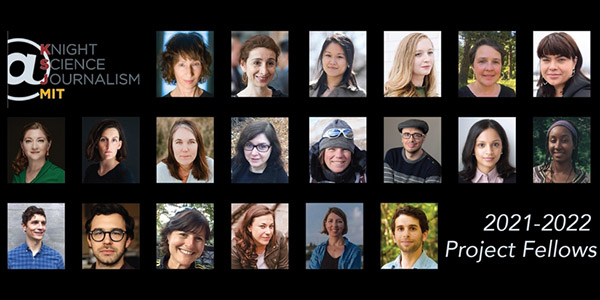
Top row, left to right: Nina Berman, Anna Kuchment, Karen Hao, Emily Mullin, Emily Willingham, Hilke Schellman. Middle row, left to right: Rebecca Boyle, Jessica Aguirre, Virginia Gewin, Natasha Singer, Julia Rosen, Jeremy Hance, Sushma Subramanian, Asha Stuart. Bottom row, left to right: Jared Whitlock, Sam Bloch, Melanie Kaplan, Lauren Gravitz, Rene Ebersole, Ferris Jabr. Not pictured: Tasmiha Khan. / Image: Sudhi Oberoi
CENTER FOR INTERNATIONAL STUDIES
Human rights journalist Ada Petriczko is the 2021 Elizabeth Neuffer Fellow
Petriczko will research topics from her recent reportage, including the rise of Hindu nationalism in India and the stability of democracy in her home country of Poland. The fellowship is awarded annually by The International Women’s Media Foundation and provides its recipient with educational, training, and coverage opportunities related to their reporting on global injustice. Petriczko’s fellowship will include work as a research associate at CIS, as well as reporting positions with The Boston Globe and The New York Times.
Story at CIS | About

Ada Petriczko, 2021 Elizabeth Neuffer Fellow at MIT
“I am overjoyed," said Petriczko. "It is a great honor and an even greater responsibility. Like Elizabeth, I see myself as a witness, committed to telling stories that are often obliterated. Who is allowed to speak and who is being silenced determines the shape of our society. I look forward to improving my skills under the mentorship of some of journalism’s greatest academics and editors and hope to become a valuable voice in the current events of my country.”
STUDENTS
POLITICAL SCIENCE / SECURITY STUDIES PROGRAM
Apekshya Prasai receives the 2021 Jeanne Guillemin Prize
As a PhD candidate in the MIT Department of Political Science / Security Studies Program, Prasai analyzes the processes that trigger women’s inclusion in rebel organizations and examines how women themselves influence these processes. An authority on biological warfare, Guillemin (1943-2019) established the prize to support female PhD candidates working in the field of security studies, where women have long been under-represented.
Story
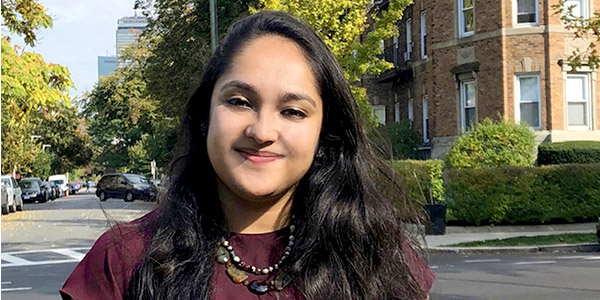
Photo courtesy of Apekshya Prasia
"I am keen to bring otherwise-neglected women’s voices into the discourse on gender and civil wars. The Guillemin prize is especially meaningful to me because Jeanne was not only an esteemed research scientist, but she was also passionate about supporting women. I share her commitment and feel humbled and honored that I could benefit from her generosity."
The Media + Awards Digest is a section
of Said and Done, the School's online digest.
EXPLORE
Follow MIT Now
Updates on the return to campus
Subscribe to Said and Done
10 issues a year
Making a Better World | Research
Browse
Making a Just Society
Explore the Resources
Solving Climate
Browse the Commentaries | MIT Climate Portal
Ethics, Computing, and AI
Full Series
Computing and AI | Humanistic Perspectives
Full Series
Perspectives for the Pandemic
Explore the Series
SHASS on MIT News
Research and Features
MIT Campaign for a Better World
Story | Join Us
Published by MIT SHASS Communications
Office of the Dean, MIT School of Humanities, Arts, and Social Sciences
Editor and Designer: Emily Hiestand
Publication Associate: Alison Lanier
Media Relations Manager: Stephen Oakes
Published 19 August 2021




